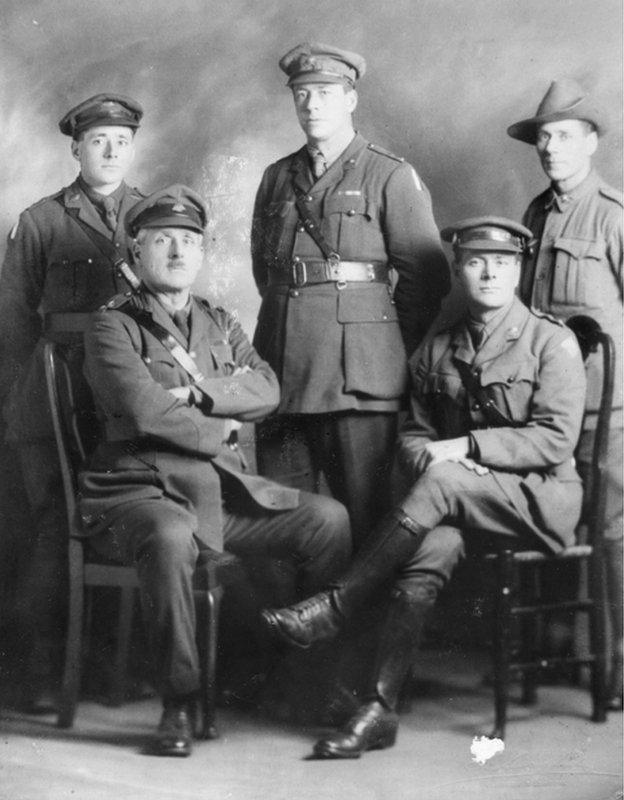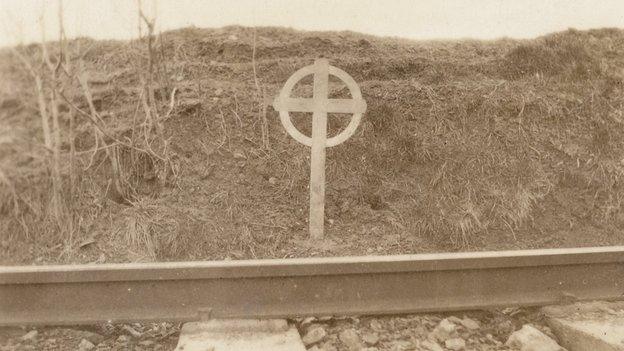My relative remembered at Gallipoli
- Published

Major Benjamin Bennett Leane (standing left) and four of his brothers who served at Gallipoli
Like many Australians, I have ancestors who served in World War One. The stories of their military service are well known by my relatives and their diaries, letters and medals are precious family relics.
One of those letters - written by my great-great-uncle, Benjamin Bennett Leane - was read by Prince Charles to the crowd gathered in the cold dawn at Anzac Cove.
With his brother (my great-grandfather) and three other brothers, Benjamin served at Gallipoli.
The 26-year-old kept a diary during the war which he addressed to his young wife Phyllis. They had been married less than three years and his battlefield missives were his way of talking to her.
One of the letters was written two days before the Anzacs landed on the shores of Gallipoli
Two days before the fateful morning when the Anzacs landed on the shores of Gallipoli, Benjamin, then a captain in the Australian army, wrote a letter to Phyllis that he feared would be his last.
"In case the worst happens and I am unable to make any more entries I will take this opportunity to bid you 'goodbye,' dear girl," he told Phyllis.
"Know that I died loving you with my whole heart and soul, dearest wife that a man ever had. Kiss little Gwen and our new baby, who perhaps I may never see, and never let them forget Daddy."
He asked Phyllis to be patient with his mother, told his wife she must eventually consider remarrying, and said he was not afraid to die.

Major Benjamin Bennett Leane is buried beside a railway line in Buissy, France
But in his later diary entries the horrors of the war are clear. He records seeing men "weeping like babies" and "cowering at every explosion".
One incident he recalls is particularly poignant. A young message runner returns from the fighting "looking like a maniac," calling for Captain Leane but unable to recognise the officer. The boy has dug himself out of the earth following several explosions that kill the other six runners with him.
Not all Australians think the disastrous Gallipoli campaign should be at the heart of the nation's founding myth but it is hard not to be moved by the accounts of what happened to the troops.
Like Erich Remarque's novel All Quiet on the Western Front and the experiences of the Turkish troops, the stories of the Anzacs are often heart-breaking.
Benjamin, along with his brothers, and some cousins and nephews, survived the horrors of Gallipoli. He died two years later at Bullecourt in France, killed by an artillery shell.
His tombstone is surrounded by thousands of graves of unidentified soldiers.